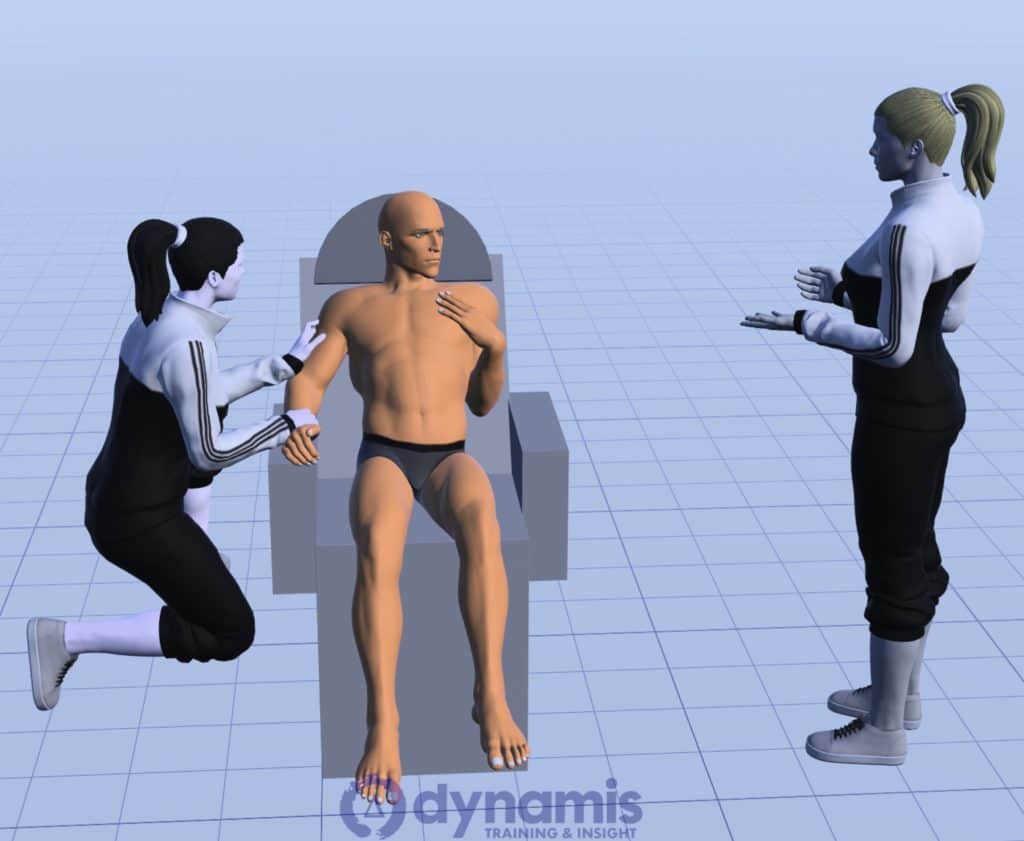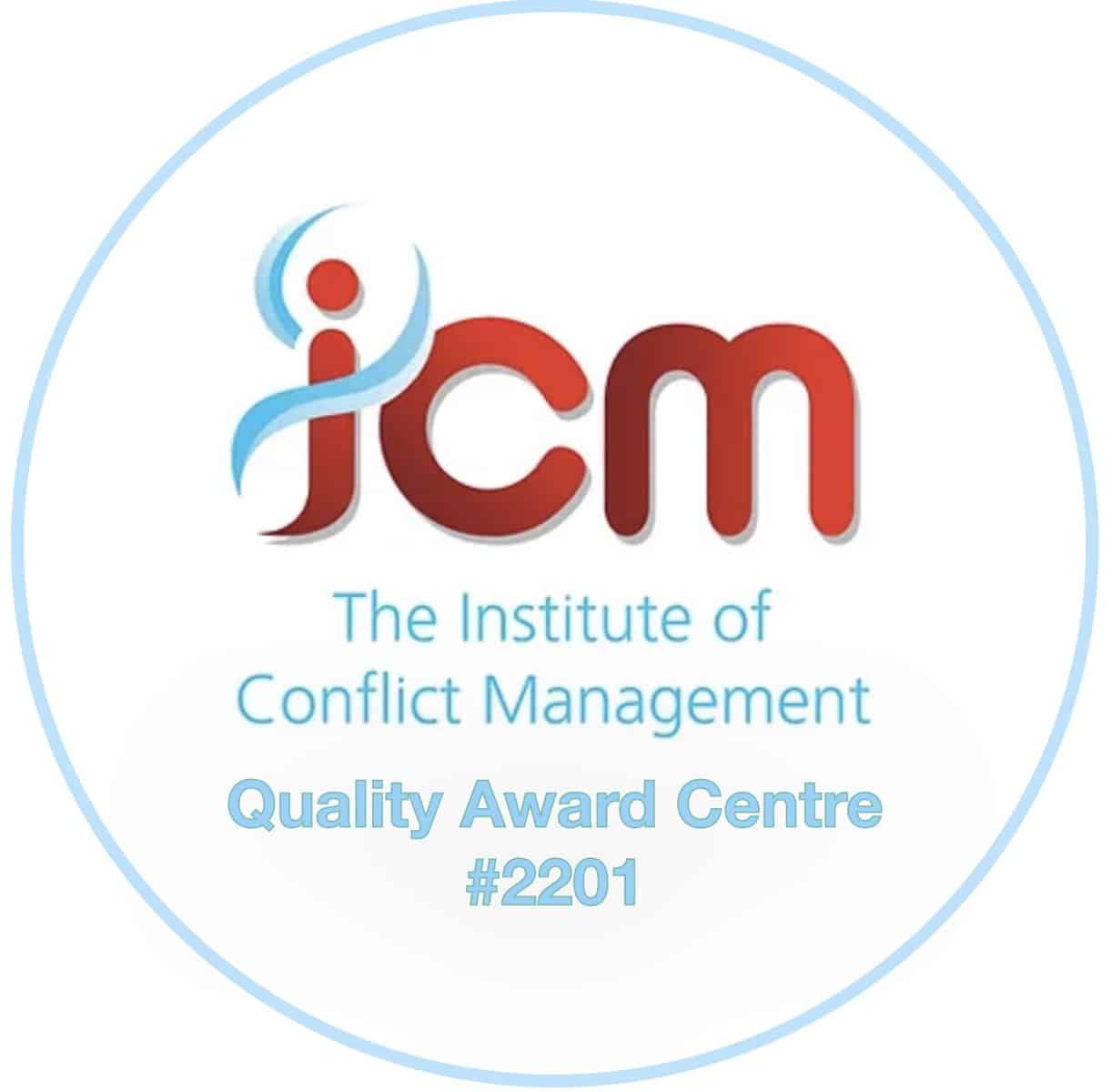


When working in brain injury care, it is essential for staff to have a deep understanding of the challenging behaviors that clients may exhibit. Brain injuries can cause a wide range of physical, cognitive, and emotional changes, and these changes can lead to unpredictable behaviors. Clients may become frustrated, angry, or anxious, and this can sometimes manifest as combative or aggressive behavior.
“I'm scared. Everything is different now. I don't understand why I can't do the things I used to do. Sometimes I feel so frustrated that I lash out at the staff. I don't mean to hurt anyone, but it's like I can't control myself.
I remember one time, I was so angry that I threw a chair across the room. I didn't mean to do it, but I just couldn't stop myself. Afterwards, I felt so guilty and ashamed. I didn't want to be that person, the one who hurts others."
To provide the best possible care, staff must be equipped with the knowledge and skills to manage these challenging behaviors. They must be able to identify triggers and warning signs, and know how to use de-escalation techniques to diffuse tense situations. Additionally, staff must be trained in safe restraint techniques to protect both themselves and their clients when necessary.
It's also important to recognize that managing challenging behaviors can take a significant emotional toll on staff. Providing person-centered care means being empathetic and compassionate, and this can be challenging when clients are exhibiting difficult behavior. Staff must be supported in their efforts to stay safe while still providing high-quality, person-centered care.
Traumatic Brain Injury (TBI) is a significant public health concern that can have long-lasting effects on an individual's physical, emotional, and cognitive functions. One of the most common behavioral changes that individuals with TBI exhibit is aggression. Aggression is a complex phenomenon that can manifest in different forms, including verbal, physical, and emotional.
Aggressive behavior can be challenging to manage and often leads to social isolation, impaired quality of life, and reduced opportunities for community integration. Aggression is often a result of the injury's impact on the frontal lobe, which is responsible for regulating emotions and decision-making. The frontal lobe is also responsible for inhibiting impulsive behavior, including aggression.
The severity of aggression in TBI can range from mild irritability to severe physical violence. It's important to understand that aggression is not intentional, and individuals with TBI may not be aware of their behavior's impact on others.
Managing aggression in TBI requires a comprehensive approach that addresses the underlying causes of the behavior. The first step in managing aggression is to identify the triggers that cause the behavior. Triggers can include environmental factors, such as noise and crowded spaces, and internal factors, such as pain and frustration.
Once the triggers are identified, staff can work with the individual to develop coping strategies that help them manage their emotions. Coping strategies can include relaxation techniques, such as deep breathing and meditation, and physical activities like exercise.
It's also essential to provide a safe and supportive environment that promotes positive behaviors. Staff can help individuals with TBI by providing positive reinforcement for appropriate behaviors and avoiding punishment for aggressive behavior.

"Thank you very much for the training workshop with the client's team and the detailed technical report and risk assessment. It is brilliant. The staff are reporting that they feel so much more supported and confident in being able to keep themselves safe after the training so thank you!"
Gayle Finlayson
Complex Care Nurse / Registered Manager
Company Director
G&P Healthcare Ltd

Managing aggression in TBI can be challenging and can take an emotional toll on staff and caregivers. It's essential to provide support and resources for staff to prevent burnout and compassion fatigue. Staff can benefit from training on de-escalation techniques and safe restraint methods to ensure their safety and the safety of the individual with TBI.
Family members and caregivers also need support to manage the challenges of caring for individuals with TBI and aggression. Support groups and counseling services can provide emotional support and practical strategies for managing challenging behaviors.
Managing aggression in TBI requires a comprehensive approach that addresses the underlying causes of the behavior. With the right support and resources, individuals with TBI can learn to manage their emotions and develop positive behaviors, promoting community integration and improving their quality of life.
- Vistelar's Special Needs Strategies for use with people with Cognitive Difficulties
You want to stop things early before people become upset, or to deal with them when they are already upset in order to resolve the situation peacefully. Sometimes, you'll need to realise someone is in crisis and know how to work as a team, with your procedures, to keep everyone safe.
Non-Escalation - resolving everyday encounters without setting off people's triggers
De-Escalation - resolving higher-stakes encounters when people are feeling angry, upset, disappointed.
Crisis Management - knowing what to do, as a team, to keep everyone safe when people are acting dangerously.
However, many staff will depend on on-the-job training or their natural talents to get through difficult encounters. Without expert input, reassuring them of their efforts, burnout is more likely.
Dynamis Brain Injury team Training uses content from our partner Vistelar, bringing together learning methodologies and training content to keep everyone safe.
Through a range of training experiences, together we bring about these outcomes for our clients:
These training programs address the period from before an interaction begins through to the consequences of how an interaction is managed, which includes non-escalation, de- escalation, and crisis management tactics.
Most importantly, we teach how to prevent conflict from occurring in the first place.
The program emphasizes non-escalation tactics because we realized years ago that it’s always better to prevent GP Surgery and Pharmacy Conflict from occurring than to deal with its aftermath.
Example Core Scenarios - you may have a person in your workplace who is:
Using these core scenarios as examples, we lead your Brain Injury care team learners through exercises where they must use elements of the Non-Escalation, De-Escalation and Crisis Management methods and select the appropriate strategies to meet the situation.
With the help of academic colleagues at Loughborough University, we are continually developing enhanced learning design methodology which ensures that your training budget is spent on best-value activities. Our training is therefore:
Established in 2006, Dynamis is a Quality Award Centre with the Institute of Conflict Management (QAC#2201) which provides independent assessment and verification of our high Quality Assurance Standards.
We have a 5-star endorsement rating from the expert panel at SWC - 'Safety Without Compromise'.
Gerard O’Dea, our Director of Training, also holds the ICM Physical Skills Tutor Award (ICM L324 # 5488T) which provides independent quality assurance, evidence, verification and recognition of the award holders’ expertise, knowledge and qualifications in physical skills tuition.


Copyright - Team Dynamis Ltd